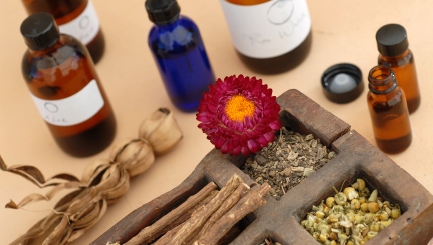Is Ayurveda As Good As Drugs For Knee Osteoarthritis?
 We often think that drugs and chemicals are the only treatment that should be considered for serious health problems, like those caused by knee osteoarthritis. We have relied on traditional scientifically-led medicines for a long time and they are those that are prescribed by doctors and medical professionals. But increasingly we are looking for alternative ways to deal with debilitating conditions. One of the most promising of these is Ayurveda, a traditional Indian approach.
We often think that drugs and chemicals are the only treatment that should be considered for serious health problems, like those caused by knee osteoarthritis. We have relied on traditional scientifically-led medicines for a long time and they are those that are prescribed by doctors and medical professionals. But increasingly we are looking for alternative ways to deal with debilitating conditions. One of the most promising of these is Ayurveda, a traditional Indian approach.
Now an Ayurvedic preparation has passed a test as an alternative to high-end drugs for the treatment of knee osteoarthritis. Perhaps even better news for supporters of Ayurveda is that it has shown few adverse effects, according to the study, which involved government-supported clinical trials across the country. The trials were held in 2006-07 and the findings have been published now in the British journal Rheumatology.
The drugs that are commonly used to treat osteoarthritis in the knees are the high-end glucosamine sulphate and celecoxib. According to a number of experts, patients may deteriorate to end-stage arthritis and often require joint replacement surgery, which is very costly and not available for everyone. Osteoarthritis can also be treated with analgesics, which provide symptomatic, long-term pain relief but also expose patients to potentially serious toxins.
For the first time ever this study saw scientists making a head-to-head comparison for traditional medicine and the Ayurveda method. They chose Ayurvedic formulations based on texts and expert opinion. They found that two shunthi-guduchi formulations, called SGC and SGCG, were equivalent to taking oral glucosamine sulphate and celecoxib in reducing knee pain and improving knee function in patients. This is very important as it shows that we no longer have to rely on medical science for treatments.

Comments are closed.